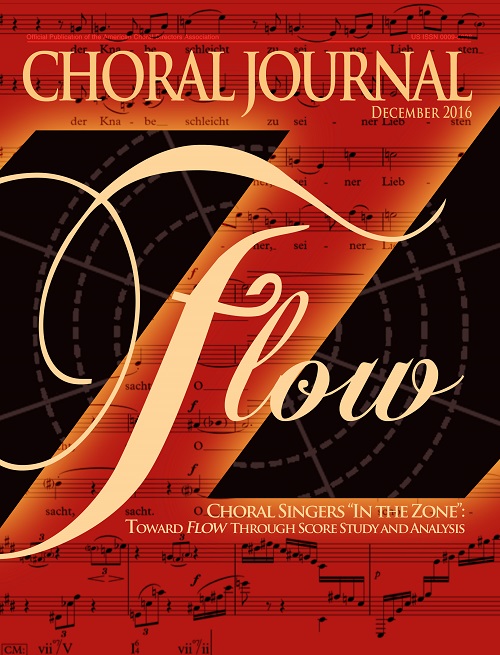In the December 2016 issue of Choral Journal, author Christopher Walters wrote an article titled “Choral Singers ‘In the Zone’: Toward Flow Through Score Study and Analysis.” Psychologist Mihaly Csikszentmihalyi first coined the term “flow” in 1975, describing a type of “optimal experience” where “a distinct period of ostensibly effortless action seems to stretch or even fly by; and upon looking back at such experiencing, we process it as among the best moments in our lives.”
The purpose of this particular article is to help conductors examine what they can do to account for flow during rehearsals or performances and how they might even create flow among singers.
Today’s blog will highlight just one point from a section of the article titled “Teaching Toward Flow,” which addresses the question:
What specifically is the conductor to do in the choral rehearsal itself to account for flow?
“To begin to teach toward flow, the choral conductor must structure a rehearsal in which singers perceive that they are highly and continually challenged, and yet capable of meeting every challenge being presented. In plain terms, choral conductors must read or intuit their ensemble and respond in rehearsal accordingly. Keeping singers in the high challenge-skill balance channel, as much as is possible—where the perception of challenge is high but where the perception of skill to meet that challenge is also high—is the universal pre-condition for flow in the choral context. Through the use of rehearsal language and feedback, flow-minded choral conductors may increase flow proneness for their singers by encouraging them to see difficult passages as attainable and yet also see “easy” passages as more challenging than they might at first blush. How such work might be accomplished in any given context surely varies by conductor, ensemble, piece of music, day of the week, barometric pressure, etc.”
Are you familiar with the concept of flow? What insights can you add to the author’s observations about how to account for flow in the choral rehearsal?
You can read the rest of the article online here. (Note: you must be an ACDA member and logged into ACDA.org to view the Choral Journal online.) If you are not an ACDA member, you can become one here or email me () to request a copy of this issue of Choral Journal for further reading ($3/copy + shipping).



Leave a Reply
You must be logged in to post a comment.